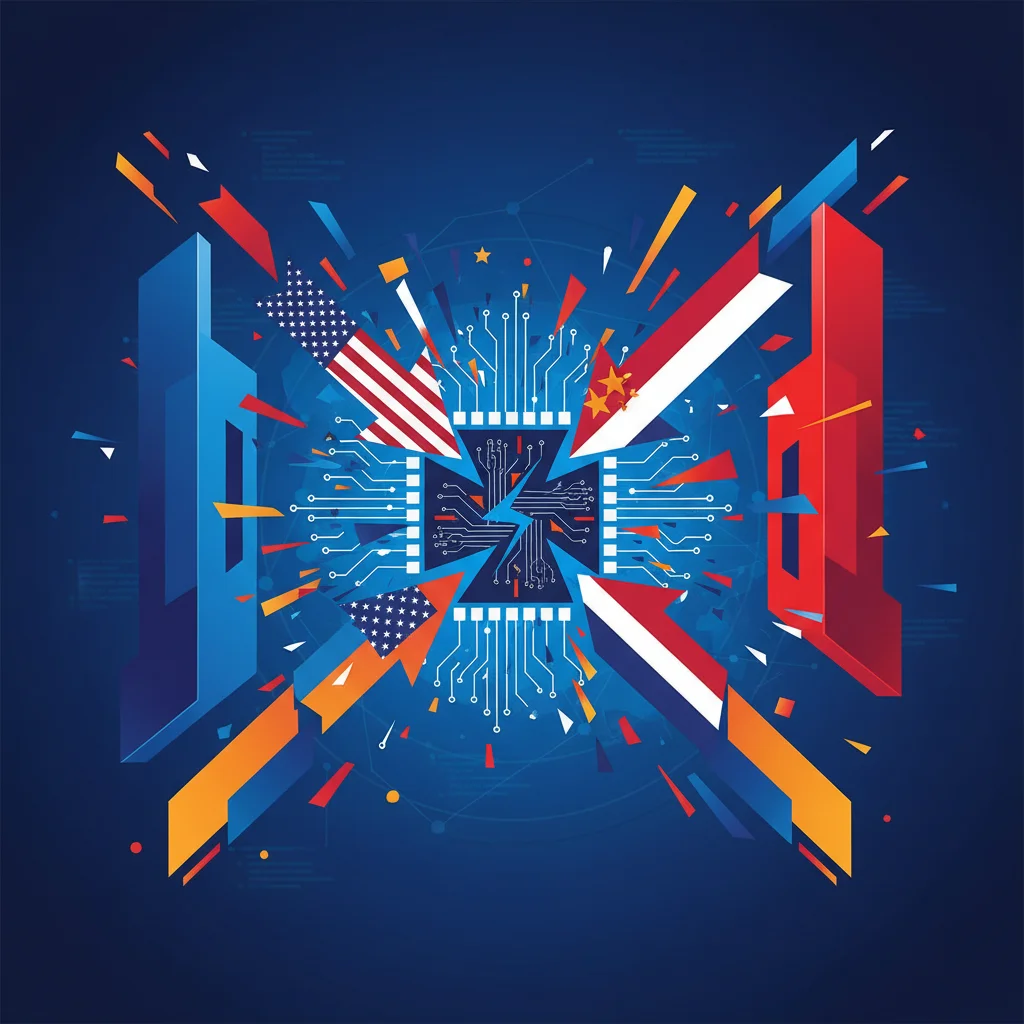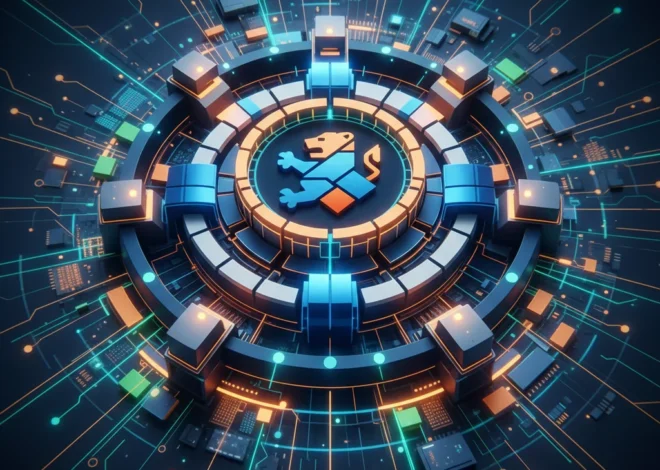
Caught in the Crossfire: How a US Ultimatum Sparked a Dutch Chipmaker Seizure
In the quiet world of microscopic circuits and silicon wafers, a geopolitical earthquake just struck. It didn’t happen on a battlefield, but in the boardrooms and government offices of the Netherlands. The story centers on a company you’ve probably never heard of, Nexperia, but its saga is a chilling preview of the future of technology, innovation, and global power dynamics. What began as a corporate takeover has spiraled into an international incident, dragging the Netherlands squarely into the center of the fierce US-China tech war.
The Dutch government recently moved to block the Chinese-owned chipmaker Nexperia from acquiring a small Dutch startup, Nowi. But the real bombshell, according to a report from the Financial Times, is the ‘why’ behind it. This wasn’t just a routine regulatory review; it was the result of a direct ultimatum from Washington. The US allegedly warned the Dutch government that if a Chinese executive remained at the helm of Nexperia’s US division, America would effectively cripple the company’s operations on its soil.
This single event is more than just a headline. It’s a stark illustration of a new global reality where the code you write, the hardware you use, and the investors you court are no longer neutral choices. They are political statements with profound consequences for startups, developers, and the entire tech ecosystem.
The Anatomy of a Tech Tussle
To understand the gravity of this situation, let’s break down the key players and what’s at stake. On one side, you have Nexperia, a major player in the semiconductor world. While it’s headquartered in the Netherlands—a historical hub of tech innovation—it is 100% owned by the Chinese tech company Wingtech. This puts it in a precarious position.
On the other side is the United States, which has adopted an increasingly aggressive stance on preventing China from accessing critical technologies. The US government views the semiconductor supply chain not as a commercial network, but as a matter of national security. The fear is that Chinese access to advanced chip technology could supercharge its military capabilities, surveillance state, and its progress in fields like artificial intelligence.
Caught in the middle is the Netherlands. Home to giants like ASML, the company that makes the indispensable lithography machines needed to produce the world’s most advanced chips, the Netherlands is a linchpin in the global tech supply chain. It wants to protect its economic interests but is facing immense pressure from its powerful American ally.
The ultimatum was brutally simple: remove the Chinese executive from a key US leadership role, or face the consequences. This pressure campaign highlights a critical vulnerability for any international tech company: access to the US market and its technology is a privilege, not a right, and it can be revoked. The FT reported that US officials delivered this stark message to their Dutch counterparts, forcing them to intervene in what would have otherwise been a standard corporate affair.
Why Semiconductors are the New Oil
For those in the software world, it can be easy to forget the physical foundation upon which our digital creations are built. But make no mistake: the battle for the future of AI, machine learning, and the cloud is being fought on the factory floors where semiconductors are made. These tiny silicon slivers are the bedrock of the modern world.
Here’s a quick look at the key players and their strategic positions in this high-stakes game:
| Player | Primary Motivation | Key Strategic Assets |
|---|---|---|
| United States | Maintain technological and military supremacy; prevent China’s rise. | Dominance in chip design (Nvidia, AMD), software (EDA tools), and key intellectual property. Control over global financial systems. |
| China | Achieve technological self-sufficiency (“Made in China 2025”); reduce reliance on the West. | Massive domestic market, strong manufacturing base, significant government investment, and control over rare earth mineral processing. |
| Netherlands (representing the EU) | Balance economic interests with security concerns; achieve “strategic autonomy.” | Home to critical chokepoint companies like ASML (lithography) and NXP Semiconductors, making it indispensable to all parties. |
This table simplifies a complex reality, but the core conflict is clear. The US is leveraging its control over crucial parts of the supply chain to slow China’s progress. China is pouring hundreds of billions of dollars into building its own domestic industry to break free from this dependency. The Nexperia case shows that neutral countries like the Netherlands are no longer safe on the sidelines; they are now the primary battleground.
This has massive implications for startups. Imagine you’re developing a groundbreaking SaaS platform for industrial automation. You find a fantastic venture capital firm willing to fund you, but it has ties to China. Suddenly, you might be barred from selling to US government clients or even using US-based cloud infrastructure. Your choice of investor is no longer just a financial decision; it’s a geopolitical one. This Nexperia incident is a warning shot. The era of frictionless global tech is over, and founders need to add a geopolitical risk analyst to their list of first hires. The very architecture of your company, from your cap table to your tech stack, is now under a microscope.
The Ripple Effect: From C-Suite to Your Command Line
This high-level geopolitical drama might seem distant, but its shockwaves will be felt by everyone in the tech industry. The implications are far-reaching and will fundamentally reshape how we innovate.
For Developers and Tech Professionals
While this is a hardware story, the downstream effects on software and programming are significant. A fragmented semiconductor industry could lead to bifurcated technology standards. We could see the emergence of distinct Chinese and Western tech ecosystems, creating compatibility nightmares and limiting the global reach of platforms and applications. Furthermore, supply chain disruptions can lead to higher costs and limited availability of the high-performance hardware needed for intensive tasks like machine learning model training. The server you deploy your code on, the chips in the IoT devices you program for—their cost and origin story are now intertwined with global politics.
For Startups and Entrepreneurs
The landscape for tech startups has been permanently altered. The Nexperia case serves as a stark warning about foreign investment, particularly from China. What was once seen as a valuable source of capital is now viewed with suspicion by Western governments. National security reviews of foreign takeovers are becoming more common and more stringent. This means entrepreneurs must perform intense due diligence on their investors and be prepared for regulatory hurdles that can kill a deal overnight. The dream of building a truly global-first company from day one is now fraught with political tripwires.
For Cybersecurity Professionals
At the heart of the US government’s actions is a deep-seated concern about cybersecurity. The fear is that hardware produced by companies with ties to geopolitical rivals could contain hidden backdoors or vulnerabilities, creating a massive security risk. This “supply chain security” concern is no longer theoretical. It’s driving policy that dictates which components can be used in critical infrastructure, from 5G networks to energy grids. For cybersecurity experts, this means the focus is shifting from just software vulnerabilities to the entire hardware and firmware stack. Verifying the integrity of your hardware is becoming just as important as patching your code.
A New World Order for Technology
The seizure of a small Dutch chipmaker by its own government, under duress from a foreign power, is a watershed moment. It signals that the gloves are off in the global tech competition. The free flow of capital, talent, and ideas that defined the last 30 years of technological progress is being systematically dismantled in favor of national interests and security blocs.
We are entering an era where your nationality, your investors, and your supply chain partners matter as much as the quality of your product. The Nexperia saga is not an isolated incident; it’s a blueprint for the future. The invisible architecture of our digital world is being rewired before our very eyes, and the companies and individuals who fail to understand this new map risk being left behind in a world that is more connected digitally, yet more divided politically, than ever before.


